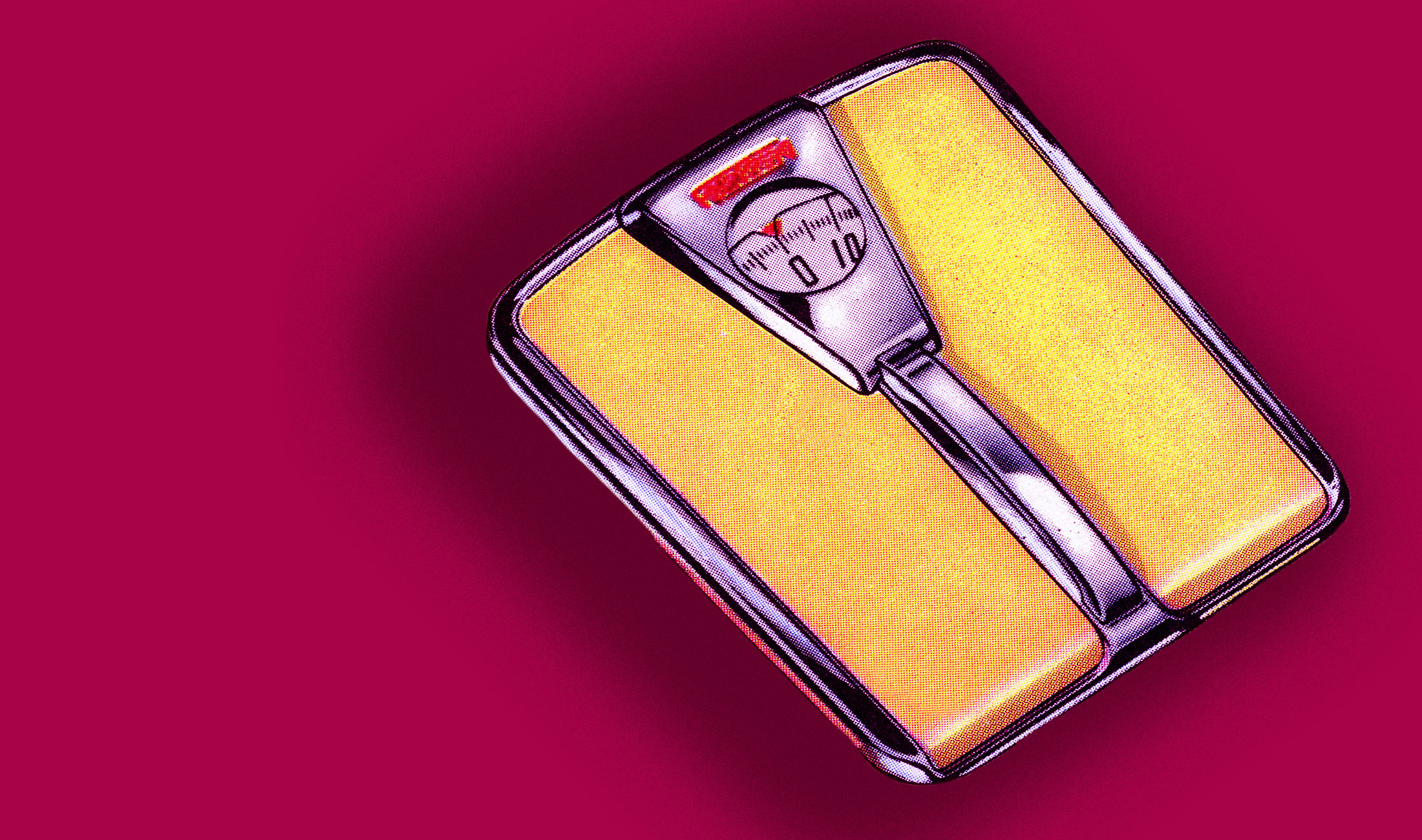It's swimsuit season! Is your body socially acceptable?
Another summer, another round of fat-shaming


A free daily email with the biggest news stories of the day – and the best features from TheWeek.com
You are now subscribed
Your newsletter sign-up was successful
It's swimsuit season again, and coincidentally, fat-shaming season, too — or perhaps not so coincidentally, because fat-shaming season runs 12 months a year.
I say this for the simple reason that it's true. There is no day, month, or time of year in which Americans (primarily women) are not made to feel that our bodies are wrong.
We often (though not always) cloak this shaming in words evoking science and/or human compassion. We're not shaming people who fall outside a socially prescribed set of physical ideals — we're worried about their health! We want what's best! We can see — with our own two eyes! — that people (primarily women) whose silhouettes don't match that of our favorite movie star just aren't healthy!
The Week
Escape your echo chamber. Get the facts behind the news, plus analysis from multiple perspectives.

Sign up for The Week's Free Newsletters
From our morning news briefing to a weekly Good News Newsletter, get the best of The Week delivered directly to your inbox.
From our morning news briefing to a weekly Good News Newsletter, get the best of The Week delivered directly to your inbox.
Luckily, America has some experience with this kind of eyeball diagnosis. In the 19th and early 20th centuries, phrenology and physiognomy were widely accepted — you could feel the lumps on a person's head, look at their face, and know their personality. In 1941, Life guided its readers in differentiating between enemy "Japs" and allied "Chinese" with a set of annotated photographs. Until the 1940s, we were pretty sure we knew who should and shouldn't procreate. Eugenics and sterilization — for the good of all!
Similarly, Americans trot out all manner of quasi-scientific scaffolding for their ideas about weight and health, generally without examining the sources or questioning the findings. For decades, we were scolded about our appetites with the height and weight charts designed in 1942 by MetLife Insurance — charts that have since been acknowledged as problematic in many, many ways. (Did you know you're supposed to be wearing a one-inch heel when measured? Or that your doctor was supposed to measure your "frame" too? Or that men's clothes supposedly weigh more than women's?)
When the MetLife charts fell out of favor, we switched to BMI — a rubric never intended for individual diagnoses that disregards the differences between the bodies of men and women, adults and children, people of different skeletal sizes, on and on. And then there's the fact that the entire conversation about weight has deep ties to the pharmaceutical and weight-loss industries — the latter of which does more than $61.5 billion in business annually.
These revenues speak to a fact that we often ignore: Diets, for the most part, don't work. If they did, there wouldn't be an industry.
A free daily email with the biggest news stories of the day – and the best features from TheWeek.com
Yet it seems no one really expects diets to "work," anyway — just look at the magazines in your local checkout lane. There's Oprah talking about your "relationship" with food; here's a guide to "staying on track with your diet"; there's a plan to help with this year's "beach body." Everywhere we go — grocery stores, gossip sites, Serious Publications, and often, sadly, among loved ones — we're reminded, endlessly, that "dieting" is a lifelong pursuit.
We're told — overtly and covertly, with a smile and a scowl — that we're expected to spend our lives restricting and controlling our food intake, day in, day out. We're not to use hunger as a guide, or simply enjoy food, or devote any of the energy we expend on figuring out how not to eat on matters more pleasant or uplifting. Nope — your diet is your life.
All this despite the fact that we've known for years that genetics play an enormous role in any individual body size and shape, and that yo-yo dieting "is linked to heart disease, insulin resistance, higher blood pressure, inflammation, and, ironically, long-term weight gain," as Harriet Brown notes in Slate. We've also begun to discover that the overweight and obese do not, actually, have a higher mortality rate — in fact, if they have Type 2 diabetes, heavier people might actually do better. Indeed, to quote researchers writing for the European Heart Journal, "not a single study exists to suggest that weight loss in chronic illness makes patients live longer."
What we do know for sure, though, is that fat-shaming causes real and lasting damage. Body image issues are rampant among young girls, with 80 percent of 10-year-olds expressing fear that they're fat — a fear which expresses itself in real anxiety and genuine sorrow. Through middle school, high school, and into adulthood, women engage in an almost ritualistic public performance of discomfort with food and their bodies; one study found that 62 percent of women over 50 say their weight or shape "negatively impacts their lives."
Imagine what we could do if we weren't so focused on a metric that's not only inaccurate but damaging (and it's primarily women, but it's not only women — just look at how people talk about Chris Christie). Imagine what we could accomplish, the joys we could experience, the simple pleasures we might rediscover, if we were to value and respect people of all sizes, and allow them the autonomy to make their own informed choices about their personal health and well-being.
I'm an American woman, and I assure you — I can barely imagine it.
Emily L. Hauser is a long-time commentary writer. Her work has appeared in a variety of outlets, including The Daily Beast, Haaretz, The Forward, Chicago Tribune, and The Dallas Morning News, where she has looked at a wide range of topics, from helmet laws to forgetfulness to the Israeli-Palestinian conflict.
-
 Why the Gorton and Denton by-election is a ‘Frankenstein’s monster’
Why the Gorton and Denton by-election is a ‘Frankenstein’s monster’Talking Point Reform and the Greens have the Labour seat in their sights, but the constituency’s complex demographics make messaging tricky
-
 Minnesota's legal system buckles under Trump's ICE surge
Minnesota's legal system buckles under Trump's ICE surgeIN THE SPOTLIGHT Mass arrests and chaotic administration have pushed Twin Cities courts to the brink as lawyers and judges alike struggle to keep pace with ICE’s activity
-
 Big-time money squabbles: the conflict over California’s proposed billionaire tax
Big-time money squabbles: the conflict over California’s proposed billionaire taxTalking Points Californians worth more than $1.1 billion would pay a one-time 5% tax
